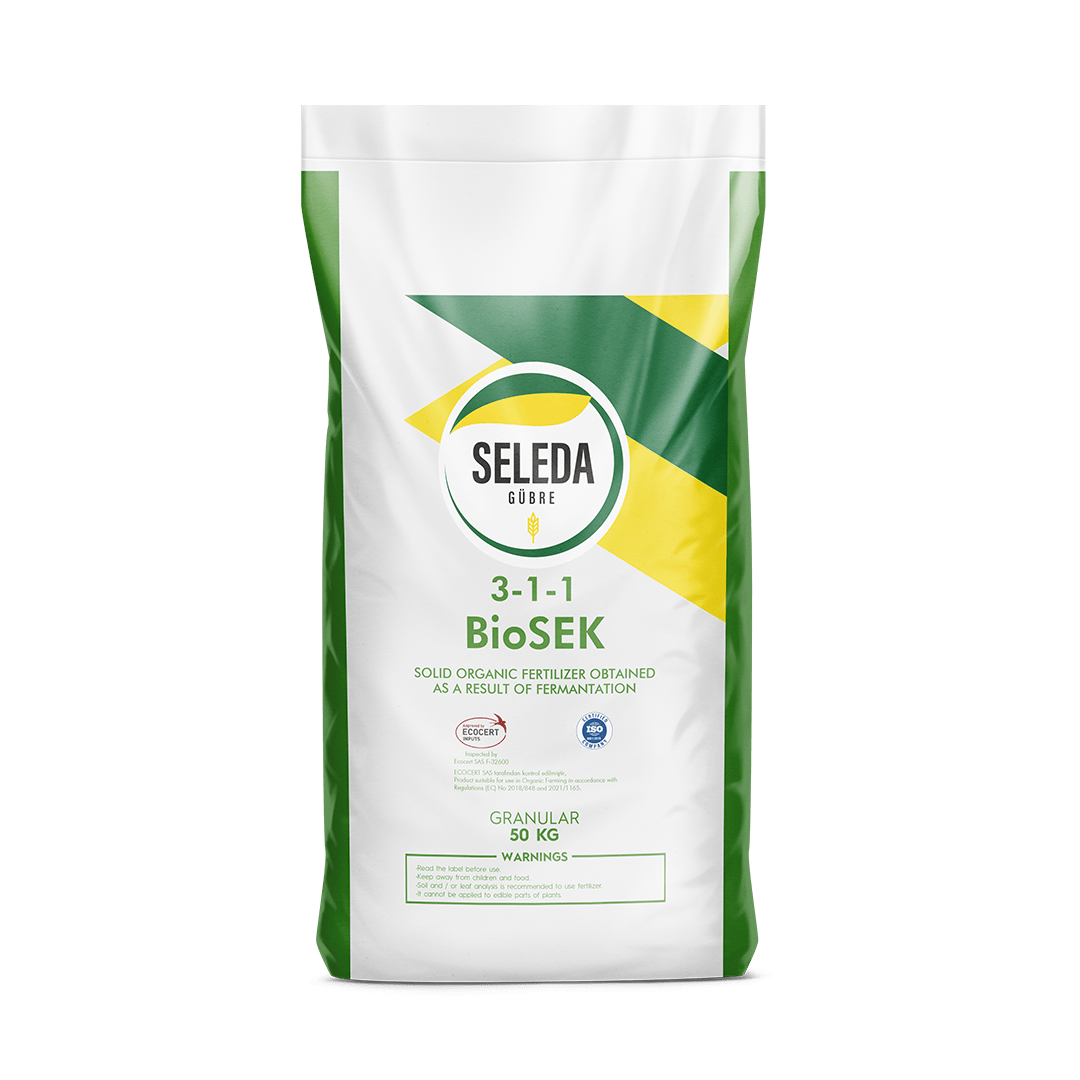
Biosek 3-1-1
Solid Organic Fertilizer Obtained As a Result of Fermantation
Bio SEK; It is an organic fertilizer and soil conditioner obtained as a result of the fermentation process during biogas production and contains organic micro, macro and natural enzymes.

Use Table
| Plants | Amount of use KG / Decare |
| Open crop field vegetables | 50-100 kg |
| Greenhouse vegetables | 100-200 kg |
| Watermelon, Melon, Raspberry | 100-150 kg |
| Strawberry | 50-100 kg |
| Tea, Tobacco | 120-200 kg |
| Wheat, Barley, Paddy, Sunflower, Canola, Oat, Lentil, Chickpeas, Bean, Soybean | 50-100 kg |
| Potato, Sugar beet, Onion, Radish, Carrot | 80-120 kg |
| Cotton, Corn, Sorghum, Sesame, Black cumin | 50-100 kg |
| Turf / at the time of first seeding | 150-200 kg |
| Landscape and Landscape Gardening, Flowering Ornament Plant | 100-150 kg |
| Land Reclamation and Improvment | 100-150 kg |
| Banana | 2-4 kg / Ağaç Yaşına Göre |
| Hard and soft seed fruit trees, Grape | 1-5 kg / Ağaç Yaşına Göre |
| Almond, Hazelnut, Walnut, Hazelnut, Pistachio | 1-5 kg / Ağaç Yaşına Göre |
Product Features
• The quality and quantity of products produced using Bio SEK organic fertilizers increase.
• It increases the growth rate of the plant and provides early product. It makes the soil fertile thanks to the minerals required for the soil it contains.
• Resistance of plant and soil against drought increases.
• The plant needs less water, thus it saves on irrigation water usage.
• Bio SEK organic fertilizer darkens the color of the soil, allowing the soil to absorb more sunlight.
• Increases the amount of organic matter in the soil, allowing beneficial worms to multiply.
• It facilitates air and water intake by increasing the permeability of the soil.
• It distributes the nitrogen amount given to the soil to the plant in a balanced way.
• It converts the iron in the soil, which is necessary for plant growth, into a form that the plant can take.
• Increases productivity by increasing the microbiological activity in the soil thanks to the organic matter and carbon it contains.
• It increases the growth rate of the plant by increasing the cell division in the plant.
• It strengthens the immune system of the plant against pests and pathogens.
• It reduces the toxins in the soil.
• Increases the organic carbon content in the soil.
• It improves the physical and chemical conditions in the soil and regulates the pH balance.
• Increases seed germination rate.
• Helps the growth and strengthening of fringe roots.
• It does not contain any pathogens as it is completely sterilized and fermentation is completed.
• It reduces the cost of chemical fertilizers used.


